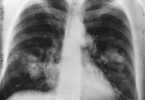Many people are not aware of the challenges the Black LGBTQ+ community may face. Black LGBTQ+ individuals sometimes face a double dose of discrimination. Imagine dealing with racism because of your skin color and then facing prejudice because of who you love or how you identify–it’s like getting hit from different sides. Acceptance within the Black community can sometimes be tough for LGBTQ+ folks. Traditional values and religious beliefs might clash with LGBTQ+ identities, making it harder for some Black LGBTQ+ individuals to feel fully accepted or supported by their families or communities. Besides multiple discrimination, other obstacles the community faces include homelessness and housing insecurity.
Homelessness among Black LGBTQ+
When we talk about homelessness and not having stable places to live, Black LGBTQ+ members often face very tough experiences compared to their white counterparts. It’s like they’re dealing with a double whammy. Because of their identity as Black and part of the LGBTQ+ community they often end up having more problems finding a safe place to call home. According to a Center for American Progress report, 40% of homeless youth identify as LGBTQ. They often become homeless because they flee abuse or lack acceptance at home due to their sexual orientation or gender identity. Once on the streets, with limited resources, many LGBTQ youth resort to survival activities like drug sales or sex work to get by. LGBTQ youth of color face a much higher likelihood of homelessness. In a survey of service providers for homeless youth in 2014, 31% of LGBTQ youth they helped were African-American or Black. In 2015, two-thirds of youth in these facilities were Black, Hispanic, or American Indian. According to a study by the National Center for Health Statistics, in 2019, an estimated 12% of the LGBTQ+ population experienced homelessness, with a higher percentage among African Americans and Hispanics/Latinx (21%) compared to whites (10%).
Homelessness and housing insecurity harm Black LGBTQ+ health. When you are homeless you have trouble receiving healthcare. This increases the danger of contracting HIV/AIDS through unsafe sex or sharing needles to survive. Living in unsafe and dirty environments leads to breathing respiratory diseases like bronchitis, TB, and pneumonia can occur. You will be malnutrition and develop weak immune system if you severally miss meals. Having no home and facing discrimination must be stressful. No surprise homeless Black LGBTQ+ people have increased despair, anxiety, and other mental health issues. Some may use drugs or alcohol to survive on the streets. It causes addiction and substance abuse. Black LGBTQ+ street dwellers may suffer from skin illnesses and sores.
Why homelessness is a common among Black LGBTQ
Family rejection is a big deal here. A lot of Black LGBTQ+ individuals get kicked out or don’t have support from their families, due to their sexual orientation or gender identity. This lack of family support leaves them without a stable place to live and often leads to homelessness.
Another major contribution to homelessness is multiple discrimination. Black LGBTQ people face discrimination on two fronts–racial prejudice and LGBTQ-related bias. Imagine dealing with prejudice because of your race and also because of who you love or how you identify – it’s a tough combination right? This mix of discrimination often hits them harder, making it more likely for them to end up without a home or living in really insecure housing situations. And you know what’s heartbreaking? Sometimes even LGBTQ+ spaces don’t feel safe for Black folks. It’s like they’re stuck in this middle ground where they don’t feel completely accepted in their racial communities or in some LGBTQ+ circles.
Systemic issues, such as limited access to proper healthcare, job discrimination, and higher rates of poverty within the Black LGBTQ community, compound the problem. As a Black LGBTQ, these systemic barriers will restrict your ability to access necessary resources and services, pushing you to homelessness or precarious housing situations.
Solutions to Black LGBTQ+ Homelessness
But it’s not all bleak. There are efforts to help out. Some places are working on creating shelters and support programs that cater specifically to Black LGBTQ+ individuals. These places don’t just offer a bed for the night; they provide mental health support, job training, and legal assistance, understanding the unique struggles these folks face. For instance, organizations and initiatives such as The Marsha P. Johnson Institute, The True Colors Fund, Audre Lorde Project, and The Center for Black Equity directly create shelters or provide support programs that cater specifically to Black LGBTQ+ individuals by offering safe housing, mental health support, job training, legal aid, and other essential resources tailored to the unique challenges faced by this community.
Legislation is also crucial. Laws that protect against discrimination based on sexual orientation and gender identity are super important. They’re like a safety net, offering some legal backing against the unfair treatment Black LGBTQ+ folks often face. Better communication between parents and LGBTQ+ youth is essential to preventing homelessness. Establishing educational initiatives, conferences, and counseling for parents and youth can fill the knowledge gap. These initiatives can refute LGBTQ+ myths and encourage family talks. Parents and young people can share their experiences, ask questions, and get advice from LGBTQ+ peers and experts in support groups or community organizations.
Parting shot
It’s about creating a world where everyone, regardless of their race or who they love, can feel safe and have a place to call home. That means working on systemic issues, changing attitudes, and making sure support systems are inclusive and supportive for everyone.
Learn more:
https://www.prisonpolicy.org/blog/2019/01/22/lgbtq_youth/
https://www.thetrevorproject.org/wp-content/uploads/2022/02/Trevor-Project-Homelessness-Report.pdf








